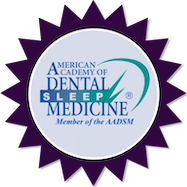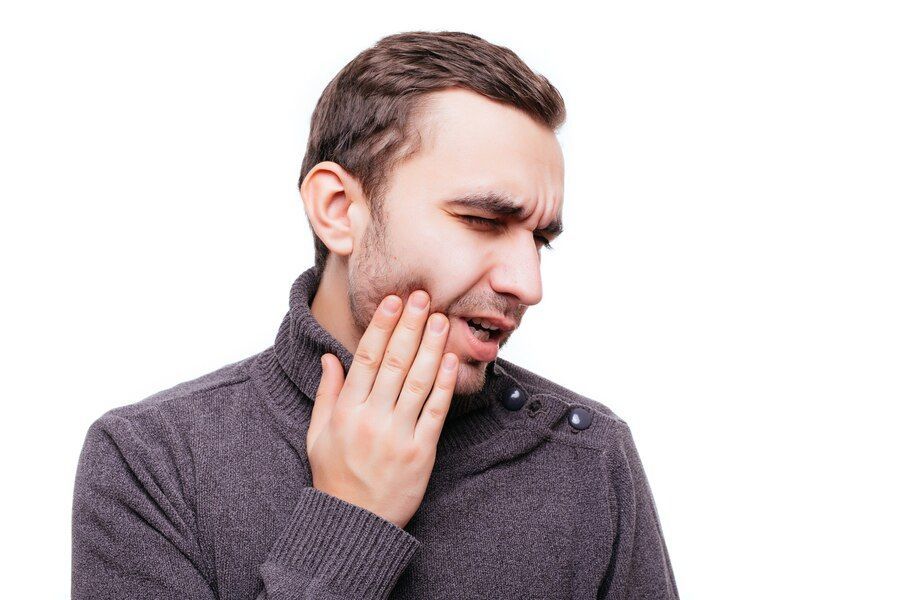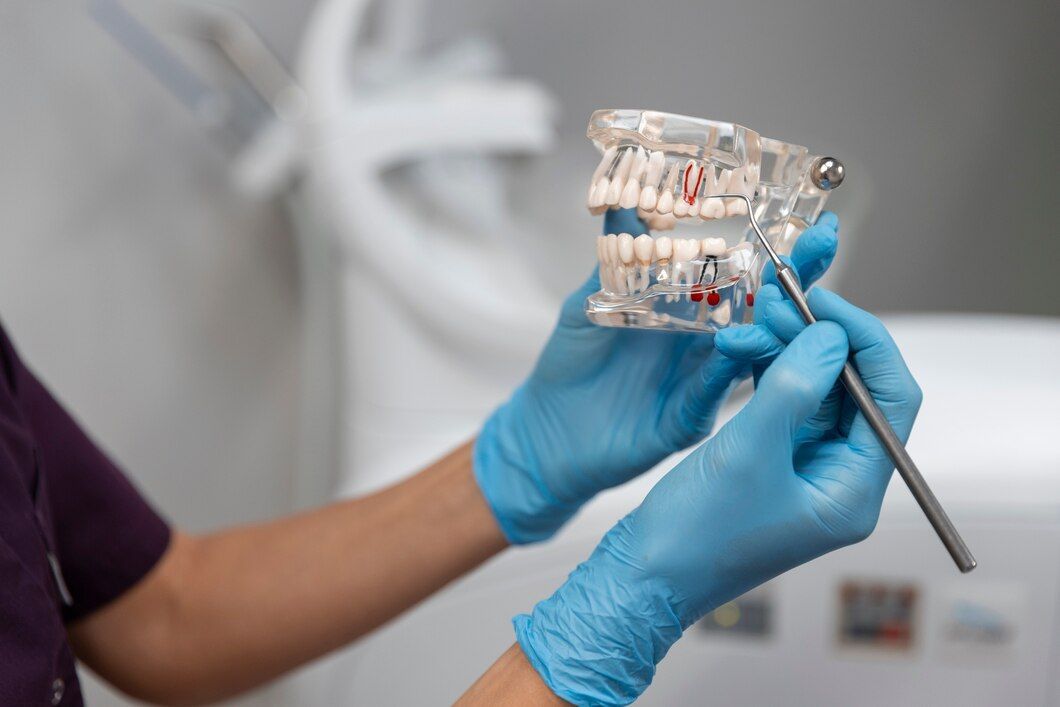Welcome to Fuller Sleep & TMJ Solutions | Greensboro, NC | frontdesk@fullersleep.com
How Headaches Are Linked to TMJ Issues

Headaches are a common issue that can disrupt daily life, making it hard to concentrate, work, or even relax. Many people don’t realize that their headaches might be related to problems with their jaw. One such problem is known as temporomandibular joint (TMJ) disorder. The TMJ is the hinge joint that connects your jaw to your skull, and any dysfunction in this area can lead to significant discomfort, including headaches.
The connection between TMJ issues and headaches lies in the close proximity of the jaw muscles and nerves to the head. When the TMJ is not working properly, it can cause tension and pain that radiates up to the temples, forehead, and even the back of the head. This pain can mimic the symptoms of regular headaches or migraines, making it difficult to identify without professional help.
We understand the frustrating and often debilitating nature of these headaches. Dr. Fuller specializes in diagnosing and treating TMJ-related headaches, helping patients find effective relief. By exploring the causes, symptoms, and treatments of TMJ-related headaches, we aim to provide you with the knowledge you need to address this pain and improve your quality of life.
Understanding the Connection Between TMJ Issues and Headaches
The connection between TMJ issues and headaches is intricate but well-established. The temporomandibular joint (TMJ) serves as the hinge that allows your jaw to move up and down and side to side. When this joint is misaligned or under strain, it can lead to various forms of discomfort, including headaches.
The TMJ is surrounded by muscles and nerves that extend to different parts of your head and face. When the joint is not functioning correctly, it can cause tension in these muscles and stress the surrounding nerves. This tension often radiates into the forehead, temples, and even the back of the head, causing headaches that can be severe and chronic.
Not to mention, TMJ issues can also lead to muscle inflammation. This can put additional pressure on the trigeminal nerve, which is responsible for many facial sensations. This nerve irritation can result in what feels like a typical headache but is actually rooted in TMJ dysfunction. Recognizing this connection is vital for finding the right treatment.
Common Symptoms of TMJ-Related Headaches
TMJ-related headaches come with a variety of symptoms that can affect daily activities. A common sign is pain in the temples, which may feel like a tight band around your head. This pain can make it hard to focus or relax, disrupting work, school, and leisure activities.
Jaw pain often accompanies these headaches. You might notice tenderness around the jaw joint, making it uncomfortable to open your mouth wide or chew food. Popping or clicking sounds while moving the jaw are also frequent indicators of TMJ issues.
Ear-related symptoms are another clue. These can include earaches, a clogged feeling, or even ringing in the ears. The close proximity of the TMJ to the ears means that dysfunction in the joint can easily affect auditory functions, leading to additional discomfort.
Another symptom to watch for is neck and shoulder pain. The interconnectedness of muscles can cause tension to spread from the jaw to the neck and shoulders, exacerbating the headache and making simple movements painful. Knowing these symptoms can help in identifying TMJ-related headaches and seeking appropriate treatment.
Diagnosing TMJ Issues and Related Headaches
Diagnosing TMJ issues and their related headaches involves a comprehensive approach. Dr. Fuller begins by taking a detailed medical history to understand your symptoms and any previous treatments. This information helps identify patterns that could be linked to TMJ disorders.
Physical examination is crucial. Dr. Fuller will check your jaw’s range of motion, listen for any clicking or popping sounds, and feel for areas of tenderness around the jaw and face. These steps help pinpoint the specific problems within the temporomandibular joint.
Sometimes, imaging tests like X-rays, CT scans, or MRIs are necessary. These tests provide a clearer picture of the joint’s structure and can reveal issues like joint misalignment or arthritis. With these diagnostic tools, Dr. Fuller can accurately identify the cause of your headaches and develop a treatment plan tailored to your needs.
Effective Treatments for TMJ-Related Headaches
Treating TMJ-related headaches effectively often requires a multi-faceted approach. One primary method is oral appliance therapy. Dr. Fuller customizes mouthguards that help align the jaw properly, relieving tension in the TMJ and reducing headaches.
Medications can also be part of the treatment plan. Pain relievers, anti-inflammatories, and muscle relaxants may be prescribed to manage the pain and reduce inflammation. These medications can provide immediate relief and make other treatments more effective.
Physical therapy is another key component. Specific exercises can strengthen the muscles around the jaw, neck, and shoulders, improving flexibility and reducing tension. Dr. Fuller often recommends these exercises to help manage pain at home. In severe cases, injections or minimally invasive procedures may be considered to provide longer-lasting relief.
Why TMJ Issues Might Be the Cause of Your Headaches
Understanding the link between TMJ issues and headaches is the first step toward finding effective relief. TMJ-related headaches can significantly impact your daily activities, making it hard to eat, speak, or even focus. Recognizing the symptoms and seeking professional diagnosis can make a big difference in your quality of life.
Dr. Fuller’s expertise in diagnosing and treating TMJ disorders ensures that you receive comprehensive care tailored to your unique needs. From oral appliance therapy and physical exercises to medications and advanced procedures, the available treatments can provide lasting relief from TMJ-related headaches.
If you’re experiencing headaches that you believe may be linked to TMJ issues, don’t hesitate to seek help at our
sleep center in Greensboro, NC. Schedule a consultation with Dr. Fuller at Sleep & TMJ Solutions today to explore your treatment options and take the first step toward a pain-free life. Let us help you regain your comfort and functionality!

CONTACT US
Fuller Sleep & TMJ Solutions
1515 West Cornwallis Dr Suite 110 Greensboro, NC 27408
BUSINESS HOURS
Monday: 8am – 5pm
Tuesday: 8am – 5pm
Wednesday: 8am – 5pm
Thursdays: 8am – 2pm
All Rights Reserved | Fuller Sleep & TMJ Solutions
© 2023 All Rights Reserved | Fuller Sleep & TMJ Solutions
Website designed by: Morningdove - Accessibility Statement












